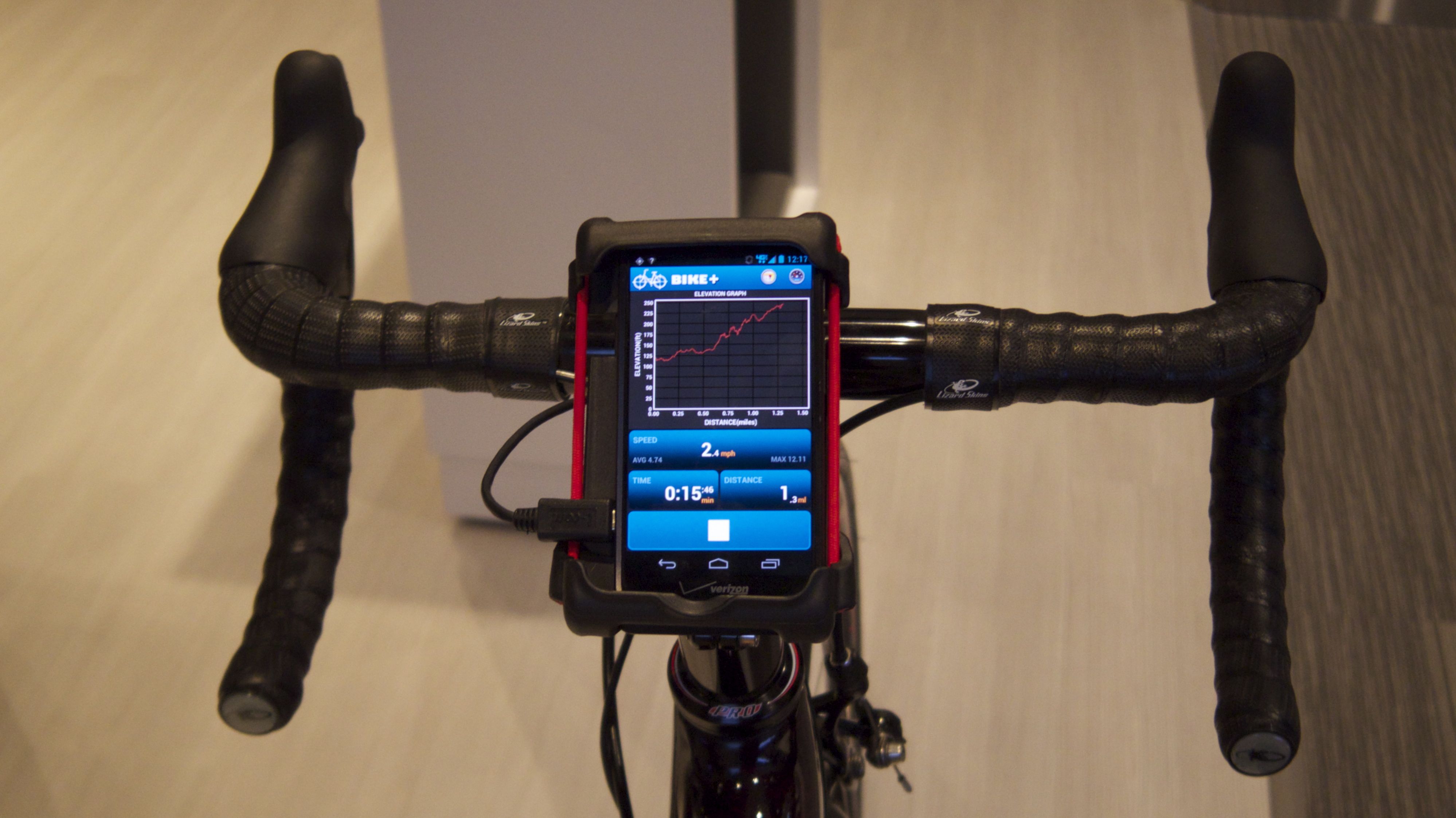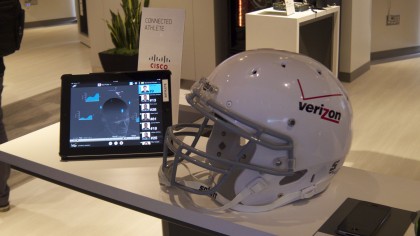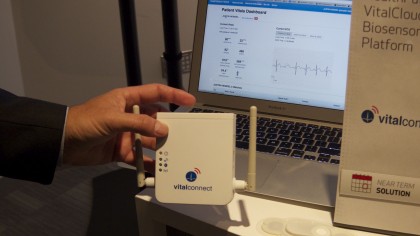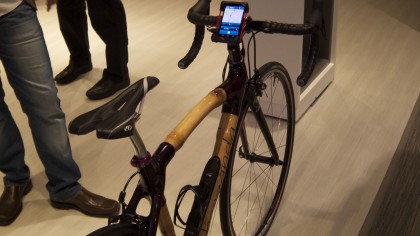Verizon's Innovation Center cooking once again, puts future tech in the spotlight
But what's in it for Big Red?

Sign up for breaking news, reviews, opinion, top tech deals, and more.
You are now subscribed
Your newsletter sign-up was successful
On the ninth floor of an office building with a photo-op view of the Bay Bridge lives the newly re-opened Verizon Innovation Center.
"Verizon Innovation Center really embodies what we at Verizon think about innovation," simply stated the carrier's Executive Vice President and CTO Tony Melone at a press event today to mark the re-opening.
Shut down for the last nine months, the San Francisco center has been remodeled and expanded. It's one of two locales (the other is in Massachusetts) where Innovation Program partner ideas are incubated, showcased and developed before heading to market.
"It's certainly not a money-making proposition for Verizon," Melone said. "There is no fee for partners to participate here. The intellectual property developed that is developed here by our partners stays with our partners."
Verizon said there are over 200 participants in the Innovation Program, concocting solutions for issues in areas like healthcare, the connected home and fitness. The San Francisco center counts Cisco and Qualcomm as founding partners, and their wares mix with devices from smaller firms in the center's showroom.

Spotted tech
Partners we spoke to said they relish being able to operate independent of Verizon whille still leveraging the resources of America's largest carrier, including project management, radio solutions, ODM and other third-party hook-ups and, of course, network connectivity.
"Their network coverage in the U.S. is critical," Justin Heindel, vice president of business development at Vital Connect, told TechRadar about what drew his company to work with Verizon.
Sign up for breaking news, reviews, opinion, top tech deals, and more.
"They're aggressive about cultivating an innovation ecosystem," he added.
Vital Connect produces a user-worn patch that monitors user's vital signs, sending that info to a phone, tablet or web browser.

Another Innovation Center-developed piece of tech on display was Wi-MM's Bike+, essentially an anti-theft system for a two-wheeler that's also capable of delivering the kind of stats regular riders would want to know.
The BPU-100, as the black slab is called, is Verizon 3G-enabled and includes a GPS receiver, vital to locating a bike if it's wheeled away without permission. In the event of a robbery, the BPU-100 sends a text to the owner's phone, hopefully giving them enough time to stop the would-be crook.
It also emits a buzz during theft, acting like a car alarm to draw attention to the low-down activity. However, if a user misses the chance to nab the culprit, they can lock down their bike's location using a companion app.
There is a way to control the sensitivity of the alerts users receive, meaning you won't get a pocket jolt at every motion your locked bike makes if you don't want to.

The unit, developed by a three-member crew in Santa Clara, Calif., isn't just for cases of bike burglary. It hooks up via Bluetooth to smartphones to deliver performance and ride stats (incline, time, speed, distance, etc.) and automatically uploads ride information to the cloud so users can track their goals and progress.
BPU-100 is available to bike manufacturers and fleet management companies, meaning bike sharing just got another high-tech partner to help it get rolling in the States.
Wi-MM's innovation isn't commercially available yet, but look for it before the year's end.
Out of the goodness of its Big Red heart?
The Innovation Center's efforts sound almost too good to be true, and naturally there has to be something in it for Verizon.
We posed the question to Arvin Singh, M2M partnership manager at Big Red, who laid out what the carrier gets out of the deal.
"There's no immediate benefit when you're starting through the program, but at the end of the day, when the solution is out in the market place, and it's consumed by businesses and mass consumer, it's the activation," he said. "Every time it touches the network, there's an opportunity for Verizon to serve that client, provide the connectivity and generate some revenue through service."
He added that while Verizon does make money on service revenue, the company is enabling innovation in the connected world. Innovation partners aren't required to use Verizon's network, but rather the carrier will work with them to optimize their solutions on it if they so choose.

Michelle was previously a news editor at TechRadar, leading consumer tech news and reviews. Michelle is now a Content Strategist at Facebook. A versatile, highly effective content writer and skilled editor with a keen eye for detail, Michelle is a collaborative problem solver and covered everything from smartwatches and microprocessors to VR and self-driving cars.